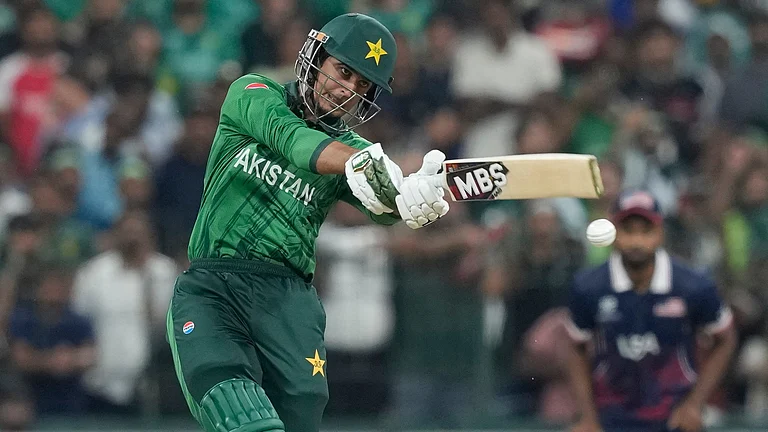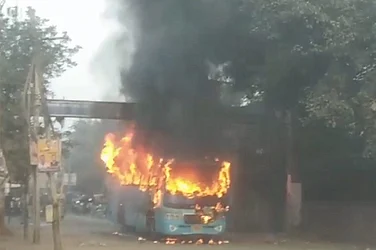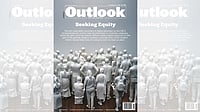Bharat Jodo Yatra, which entered its Uttar Pradesh leg today, was welcomed by Congress General Secretary Priyanka Gandhi in the state. The Yatra was joined by various Opposition leaders like Jammu and Kashmir’s National Conference chief Farooq Abdullah.
Congress general secretary KC Venugopal told the media on Tuesday that former chief ministers of Jammu and Kashmir Farooq Abdullah, Mehbooba Mufti, and Omar Abdullah will join Rahul Gandhi's Bharat Jodo Yatra when it enters the Union Territory in the last week of January.
Earlier, former Chief Minister of Jammu and Kashmir and PDP leader Mehbooba Mufti, while warmly accepting Congress’ invite to the yatra said that it was her “duty to stand with someone who has the courage to challenge fascist forces.”
"I've been formally invited to join Rahul Gandhi ji for his Bharat Jodo Yatra in Kashmir today. Salute his indomitable courage & I believe it is my duty to stand with someone who has the courage to challenge fascist forces. Will be joining him in his march towards a better India,” Mufti said in a tweet.
The yatra is likely to enter the erstwhile state of Jammu & Kashmir on January 22 and be there till the end of the month.
“The history of Congress is closely connected to the history of Kashmir,” Venugopal said. However, post the resignation of Ghulam Nabi Azad and other key state-level party functionaries, who had a considerable following in J&K, posed a challenge to the party for consolidating its roots in the region.
Meanwhile, on Tuesday Bihar Chief Minister Nitish Kumar said that his party JD(U) will not be participating in the padayatra, while terming the Congress’ Bharat Jodo Yatra as its “internal matter". At the same time Lalu Prasad’s RJD, the largest constituent of the ruling ‘Mahagathbandhan’ to which the Congress is an ally, also said the party has not taken any decision on joining the foot march.
Kumar’s comment comes days after a section of JD(U) leaders in Uttar Pradesh announced that they would join the Congress’ Bharat Jodo Yatra in the state.
“Let them (Congress) complete their programme, then we will sit together and discuss about the opposition unity," Kumar said while interacting with media persons in Bihar’s capital Patna.
Kumar on Saturday was quoted saying by several media reports that he had no problems with the Congress, his ally in the state, pitching Rahul Gandhi as the opposition's PM candidate and reiterated that he is not a claimant for the top post. The JD(U) leader, underscored the need for a consensus among all like-minded parties on the issue. Congress is desperately pinning its hopes on Bihar to revive its fortunes and score a space for political maneuvering in the future.
Political observers believe that Congress’ better performance in 2024 will be a key factor in forming a much-talked-about united opposition, because it is the only party in the opposition that has a pan-national reach.
Moreover, if the grand old party wins nearly 100-120 seats, the tally will also give them bargaining power to rope in other regional political players, and other allies.
Party insiders claim that Congress is aiming for at least 150 seats in the 2024 Lok Sabha elections, with a special focus on states like Madhya Pradesh, Karnataka, Haryana and Uttarakhand, among others, where it is in a close fight with the BJP and other regional parties.
The battle between regional parties, who compete to obtain more influence at the Centre by capturing as many seats as they can in their respective home states, presents the Congress with its greatest challenge. After all, a party's ability to influence negotiations in any partnership depends on how many seats it holds.
In the past thirty years, parties like KCR's Bharat Rashtra Samithi (BRS) in Telangana, the Trinamool Congress (TMC) in West Bengal, the Shiv Sena (Sen) and the Nationalist Congress Party (NCP) in Maharashtra, the Rashtriya Janata Dal (RJD) and Janata Dal (United) (JD-U) in Bihar, and the Samajwadi Party (SP) in Uttar Pradesh have wielded huge clout on their respective home turfs.
Observers believe that except for Uttar Pradesh, Bihar, and West Bengal, Congress has significant say in almost every state. It is either in power or a crucial part of the Opposition and hence it will remain an important player over the next decade, given the fact that AAP does not pose an existential threat to the grand old party by wooing its voter base.
(With inputs from agencies)


























